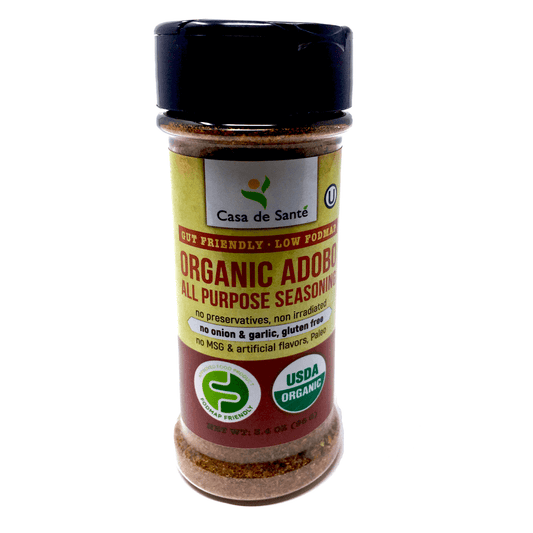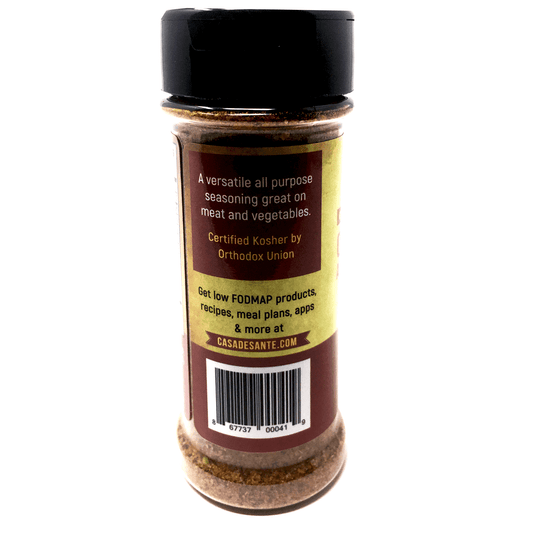Easy To Digest Tofu
If you’re looking for a protein-packed food that’s easy on your digestive system, look no further than tofu. This versatile soy-based product has been a staple in vegetarian and vegan diets for years, but it’s also becoming increasingly popular among meat-eaters looking to reduce their consumption of animal products. In this article, we’ll explore why tofu is a great source of protein, the health benefits of eating tofu, how to prepare tofu for easy digestion, different types of tofu and their nutritional value, and so much more.
Why tofu is a great source of protein
Protein is essential for building and repairing tissues in the body, and tofu is an excellent source of high-quality, plant-based protein. In fact, just one cup of tofu contains an impressive 20 grams of protein, making it a great choice for vegetarians and vegans who need to get enough protein in their diets. But tofu isn’t just for vegetarians - it’s also a great option for meat-eaters looking to reduce their consumption of animal protein.
Additionally, tofu is a versatile ingredient that can be used in a variety of dishes, from stir-fries to smoothies. It can be marinated, grilled, baked, or fried, making it a great substitute for meat in many recipes. Tofu is also low in calories and fat, making it a great option for those looking to maintain a healthy weight.
Furthermore, tofu is a good source of other important nutrients, such as iron, calcium, and magnesium. These minerals are essential for maintaining strong bones and preventing conditions like osteoporosis. Tofu is also rich in antioxidants, which can help protect the body against damage from free radicals and reduce the risk of chronic diseases like cancer and heart disease.
The health benefits of eating tofu
In addition to being a great source of protein, tofu also has several health benefits. For starters, it’s low in fat and calories, making it an ideal choice for anyone looking to lose weight or maintain a healthy weight. Tofu is also a good source of many important nutrients, including calcium, iron, and magnesium. These nutrients are crucial for maintaining strong bones, and studies have shown that people who eat tofu regularly have a lower risk of developing osteoporosis.
Another health benefit of eating tofu is that it contains isoflavones, which are plant compounds that have been linked to a reduced risk of certain types of cancer, such as breast and prostate cancer. Isoflavones have also been shown to help reduce the risk of heart disease by lowering cholesterol levels and improving blood vessel function.
Additionally, tofu is a versatile ingredient that can be used in a variety of dishes, making it a great option for vegetarians and vegans who may struggle to find protein sources. It can be grilled, baked, stir-fried, or blended into smoothies, and can be used as a substitute for meat in many recipes. Overall, incorporating tofu into your diet can provide numerous health benefits and add variety to your meals.
How to prepare tofu for easy digestion
While tofu is an excellent source of protein and other nutrients, some people find it difficult to digest. Fortunately, there are several things you can do to make tofu more digestible. For starters, always choose organic, non-GMO tofu, as this will be easier on your digestive system. When preparing tofu, make sure to drain and press it thoroughly to remove as much water as possible. This will help it cook more evenly and make it easier to digest.
Another way to make tofu more digestible is to marinate it before cooking. This can help break down some of the tougher proteins and make it easier for your body to process. You can use a variety of marinades, such as soy sauce, ginger, and garlic, to add flavor and aid in digestion.
Finally, consider pairing tofu with other foods that are easy to digest, such as cooked vegetables or grains. This can help balance out the meal and make it easier on your digestive system. Additionally, be sure to chew your food thoroughly and eat slowly to give your body time to properly digest the tofu and other foods.
The different types of tofu and their nutritional value
There are several different types of tofu available, each with its own unique nutritional profile. The most common types of tofu are silken, firm, and extra firm. Silken tofu has a creamy texture and is great for use in smoothies, soups, and sauces. Firm tofu is denser and holds its shape better, making it a good choice for grilling, baking, and stir-frying. Extra firm tofu is even denser and holds up well in dishes that require a lot of handling, such as tofu scramble or tofu nuggets.
In addition to the different textures of tofu, there are also variations in the way it is processed. For example, some tofu is made with calcium sulfate, which can increase its calcium content. Other types of tofu may be fortified with vitamins and minerals, such as vitamin B12 and iron, to make up for any potential nutrient deficiencies in a plant-based diet.
When it comes to nutritional value, tofu is a great source of protein, with around 10 grams per 100 grams of tofu. It is also low in saturated fat and cholesterol-free, making it a heart-healthy choice. Tofu is also a good source of calcium, iron, and other essential minerals, making it a great addition to a balanced diet.
Tofu recipe ideas for easy digestion
If you’re looking for tofu recipe ideas that are easy to digest, there are plenty of options to choose from. One simple preparation method is to marinate tofu in a mixture of soy sauce, rice vinegar, and ginger, then grill or bake it until crispy. Another great option is to crumble tofu and use it in place of ground meat in dishes like tacos, spaghetti sauce, or shepherd's pie. You can also use silken tofu to make creamy sauces, smoothies, and even desserts like chocolate mousse.
Tofu vs meat: Which is easier to digest?
While tofu is generally considered easy to digest, some people may find it more difficult to digest than meat. This is because tofu contains compounds that can interfere with the absorption of certain minerals, including iron and zinc. However, it’s worth noting that tofu is still a good source of these nutrients, and eating a balanced diet that includes a variety of plant-based foods can help to ensure that you’re getting enough of them. If you’re concerned about digestibility, it’s a good idea to experiment with different types of tofu and preparation methods to see what works best for you.
Tips for incorporating tofu into your diet for better digestion
If you’re new to eating tofu, there are several things you can do to make it easier to digest. First, start with small quantities and gradually increase your intake as your body becomes more accustomed to it. You can also try cooking tofu in different ways, such as baking, grilling, or stir-frying, to find the method that works best for you. Finally, be sure to eat plenty of other fiber-rich foods, such as fruits, vegetables, and whole grains, as these can help to support digestive health.
How to store tofu for optimal freshness and digestibility
Proper storage is key to ensuring that your tofu stays fresh and easy to digest. If you buy tofu in a plastic container, be sure to open it as soon as you get home and transfer the tofu to a clean, airtight container. Store the tofu in the fridge for up to a week, changing the water daily to keep it fresh. If you don’t plan to use all of the tofu at once, you can also freeze it for later use.
The role of probiotics in aiding tofu digestion
Probiotics are beneficial bacteria that can help to support digestive health. While tofu doesn’t contain probiotics naturally, you can add them to your diet by eating other fermented foods like yogurt, kimchi, and sauerkraut. Consuming these foods on a regular basis can help to improve gut health and aid in the digestion of tofu and other foods.
Tofu myths debunked: Separating fact from fiction
There are many myths surrounding tofu, including the idea that it’s bland, boring, and only for vegetarians. However, these myths couldn’t be further from the truth. Tofu is a versatile ingredient that can be used in a wide variety of dishes, from savory to sweet. It’s also packed with nutrition, making it an excellent addition to any diet. By separating fact from fiction, you can discover the many benefits of this tasty and nutritious food.
Tofu and gut health: What you need to know
Gut health is crucial for overall health and wellbeing, and eating a diet that’s high in fiber-rich foods and low in processed foods can help to support digestive health. Tofu is a great source of plant-based protein and fiber, making it an excellent choice for promoting gut health. By incorporating tofu into your diet on a regular basis, you can help to improve digestion, reduce inflammation, and support a healthy microbiome.
Delicious and easy-to-digest tofu smoothie recipes
If you’re looking for a quick and easy way to incorporate tofu into your diet, try adding it to your favorite smoothie recipe. Silken tofu blends up smooth and creamy, making it a great base for protein-packed smoothies that are easy on your digestive system. Try blending silken tofu with banana, almond milk, and peanut butter for a delicious and satisfying breakfast smoothie.
Vegan and vegetarian diets: How easy-to-digest tofu can be a staple protein source
For vegans and vegetarians, finding sources of high-quality protein can be a challenge. Fortunately, tofu is an excellent source of plant-based protein that’s easy to digest and packed with nutrition. By incorporating tofu into your diet on a regular basis, you can help to ensure that you’re getting all the protein and other nutrients you need to support a healthy, active lifestyle.
How to make your own easy-to-digest tofu at home
If you’re feeling adventurous, you can even make your own tofu at home. While it does require a bit of time and effort, the end result is a fresh, delicious, and easy-to-digest product that’s perfect for use in a wide variety of dishes. To make your own tofu, you’ll need soybeans, water, a coagulant like calcium sulfate or nigari, and some basic kitchen equipment like a blender and cheesecloth. There are many tutorials and recipes available online to guide you through the process.
Conclusion
As you can see, tofu is a versatile, nutritious, and easy-to-digest food that’s perfect for anyone looking to incorporate more plant-based protein into their diet. Whether you’re a vegetarian, a vegan, or a meat-eater looking to reduce your consumption of animal products, tofu is an excellent choice that’s sure to please your taste buds and support your health and wellbeing.
























